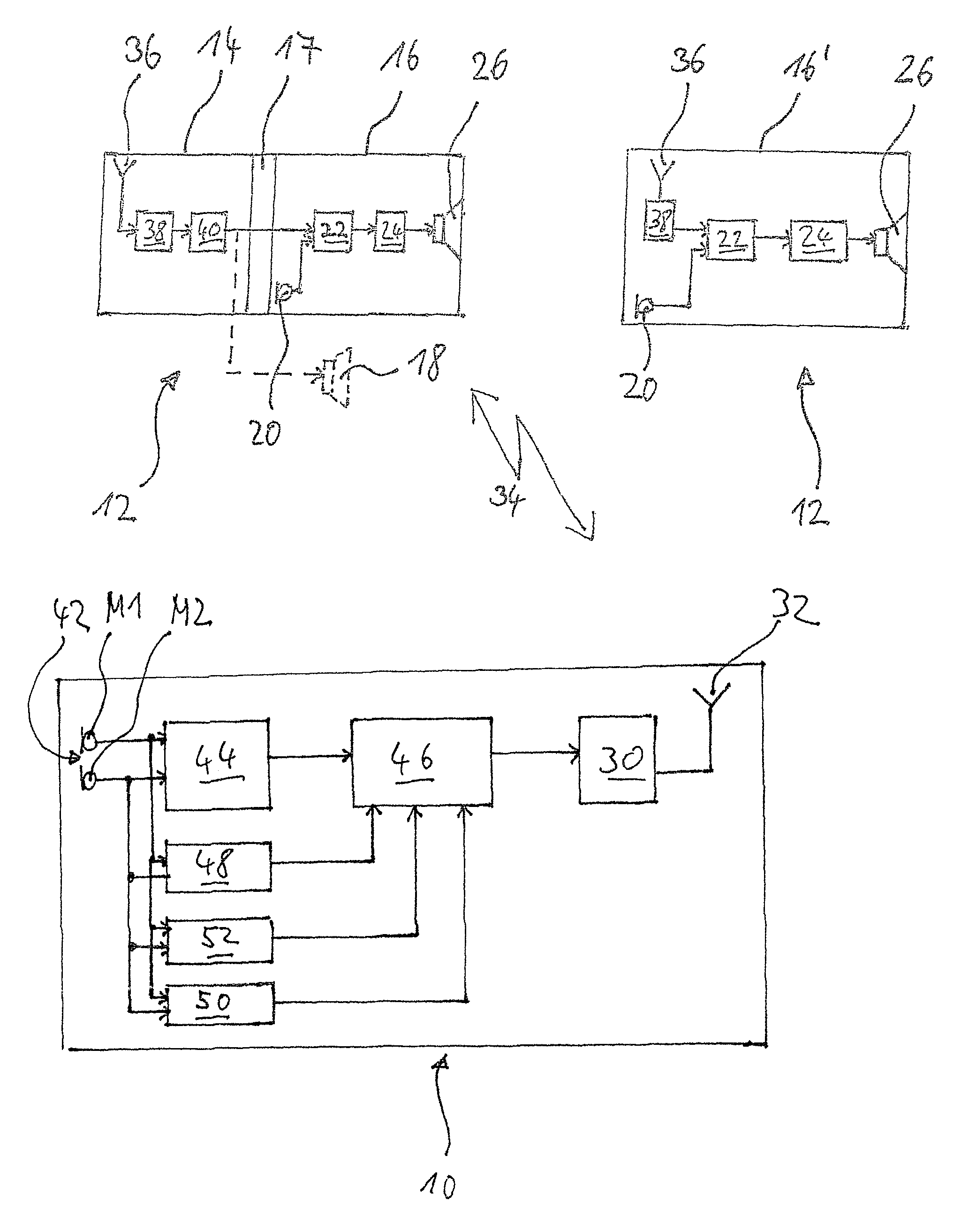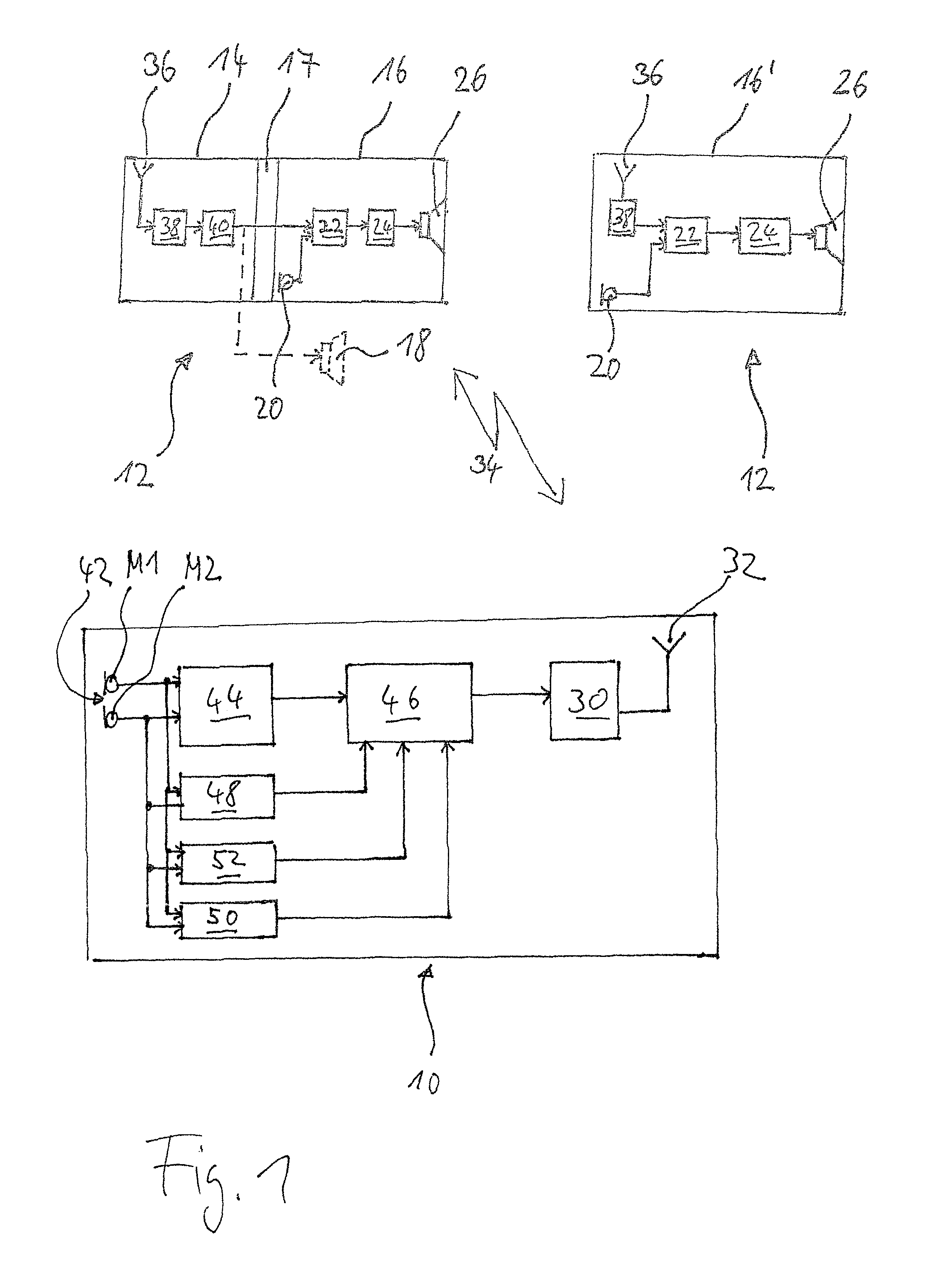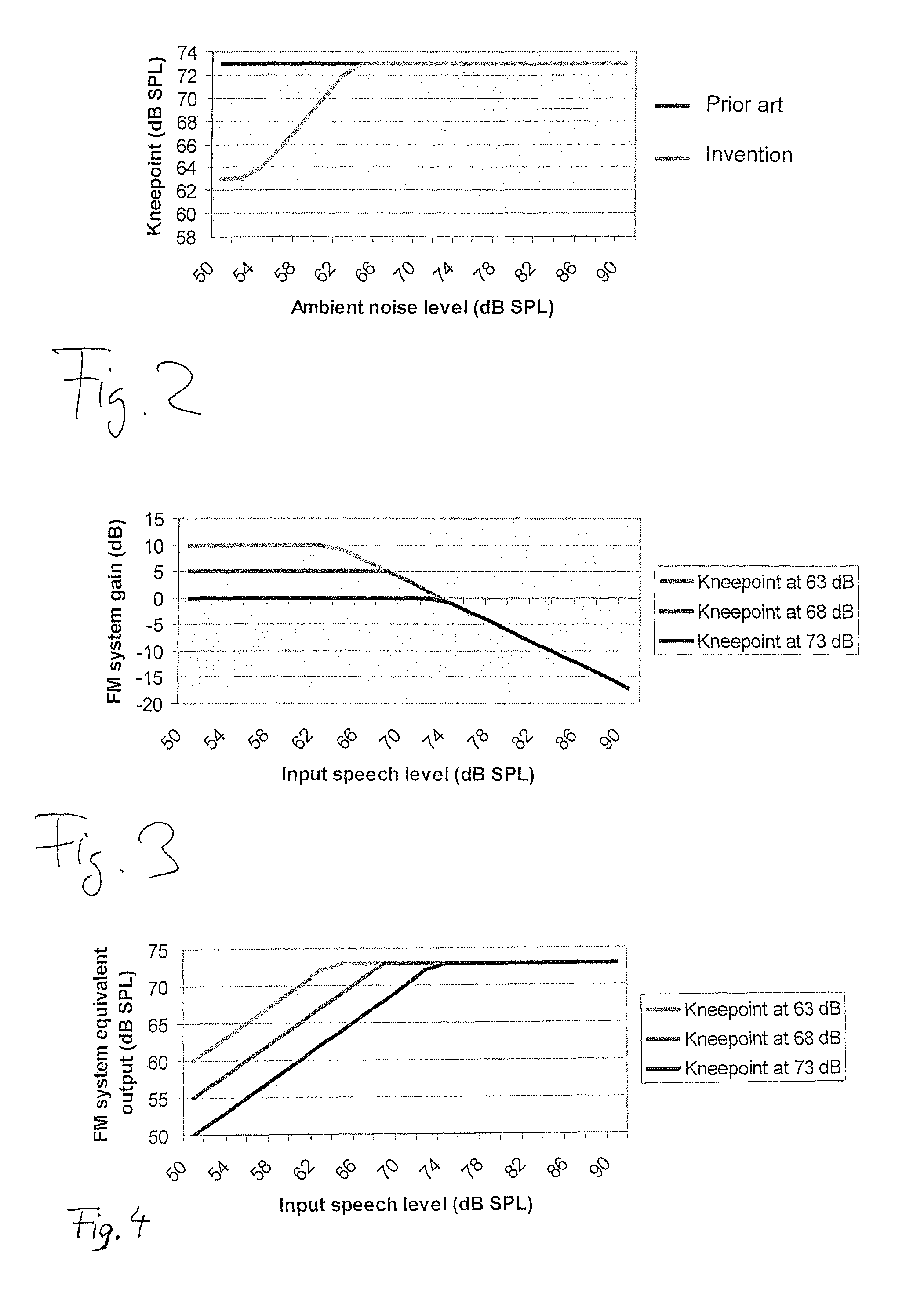Method and system for providing hearing assistance to a user
a technology for providing hearing assistance and users, applied in the direction of amplification control, active noise cancellation of hearing devices, electrical appliances, etc., can solve the problems of uneven sound image, low amplification of inability to provide a solution for soft speech input levels in fairly quiet conditions. , to achieve the effect of enhancing user comfort and benefi
- Summary
- Abstract
- Description
- Claims
- Application Information
AI Technical Summary
Benefits of technology
Problems solved by technology
Method used
Image
Examples
Embodiment Construction
[0030]FIG. 1 shows a block diagram of an example of a wireless hearing assistance system comprising a transmission unit 10 and at least one ear unit 12 which is to be worn at or in one of the user's ears (an ear unit 12 may be provided only for one of the two ears of the user, or an ear unit 12 may be provided for each of the ears). According to FIG. 1 the ear unit 12 comprises a receiver unit 14, which may supply its output signal to a hearing instrument 16 which is mechanically and electrically connected to the receiver unit 14, for example, via a standardized interface 17 (such as a so-called “audio shoe”), or, according to a variant, to a loudspeaker 18, which is worn at least in part in the user's ear canal (for example, the loudspeaker itself may be located in the ear canal or a sound tube may extend from the loudspeaker located at the ear into the ear canal).
[0031]The hearing instrument 16 usually will be a hearing aid, such as of the BTE (Behind The Ear)-type, the ITE (In Th...
PUM
 Login to View More
Login to View More Abstract
Description
Claims
Application Information
 Login to View More
Login to View More - R&D
- Intellectual Property
- Life Sciences
- Materials
- Tech Scout
- Unparalleled Data Quality
- Higher Quality Content
- 60% Fewer Hallucinations
Browse by: Latest US Patents, China's latest patents, Technical Efficacy Thesaurus, Application Domain, Technology Topic, Popular Technical Reports.
© 2025 PatSnap. All rights reserved.Legal|Privacy policy|Modern Slavery Act Transparency Statement|Sitemap|About US| Contact US: help@patsnap.com



